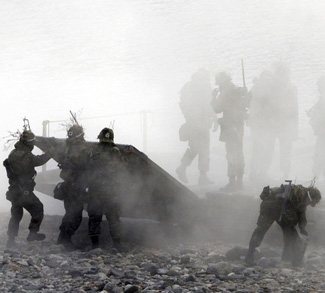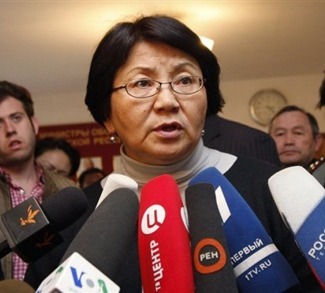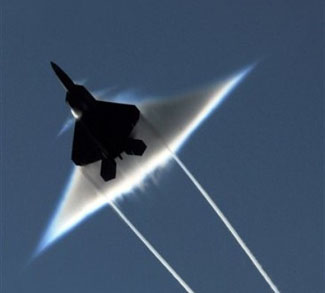FORECAST
Monday’s dual suicide bombing attack on the Moscow metro will have profound consequences for Russian domestic politics.
It didn’t take long for the FSB to state the obvious: that a group from the North Caucasus is the likely culprit behind Monday’s bombings that killed 38 people during morning rush hour. Chechen rebel leaders such as Doku Umarov have warned that they will be expanding their field of operations into Russian territory as recent as last February. Moreover, early tests on various body fragments recovered from the two female suicide bombers have corroborated that they were native to the North Caucasus.
Even if the attacks go unclaimed by major rebel groups operating out of the North Caucasus, blowback will be doubtlessly be directed at Muslim populations living in Chechnya, Dagestan, and Ingushetia, simply because it is politically expedient to do so.
The fundamental impact of these bombings will be their effect on the power dynamics that exist between President Dmitry Medvedev and Prime Minister Vladimir Putin.
Prime Minister Putin’s primary appeal stems from the fact that he is seen as a ‘strongman’ who will stand up to Russia’s enemies, whether in the form of NATO encroachment or the enemies within. Indeed, he has already pledged to ‘destroy’ those responsible for Monday’s bombings. This would not be the first time that suicide bombings were manipulated to achieve political ends. In 1999, Suicide attacks served to legitimize the Russian invasion of Chechnya during the Second Chechen War- a conflict that boosted then-Prime Minister Vladimir Putin’s popularity considerably.
These latest bombings will serve to revitalize Putin, whose military image was starting to lose its luster given the litany of economic and social problems Russia is facing. His strong siloviki connections will also receive a boost, as the Russian population will be demanding a strong military response in the North Caucasus.
Just as these bombings are a potential boon to Prime Minister Putin, the opposite is true of President Dmitry Medvedev. While both men had been hovering around an 80 percent approval rating before the bombings, President Medvedev’s image as a technocrat who exists outside the siloviki will hurt him moving forward. In many ways, Medvedev plays yin to Putin’s yang, and his economic stewardship and liberal policies will fast be forgotten as the public demands retribution in the North Caucuses.
Although the next Russian presidential elections won’t be held until 2012, Monday’s bombings will affect critical behind-the-scene power dynamics. Medvedev’s slow and steady accumulation of personal power and authority will be halted, if not reversed, taking a back seat to Putin’s siloviki clique.
Vladimir Putin’s re-assertion of himself over the Russian duumvirate will have geopolitical reverberations. Recent gains in US-Russian relations, which have produced among other things an agreement on nuclear reductions, may be reversed as an internal siege mentality often translates into bellicose foreign policy. Georgia and Ukraine may also experience blowback if Vladimir Putin continues to re-assert historic Russian spheres of influence in order to buttress his ‘strongman’ credentials. Monday’s events will indirectly feed into the perception that Russia needs to rely on the strength of military might in order to regain its former superpower glory; much to the detriment of diplomacy and compromise.
In sum, the most likely consequence of Monday’s bombings will be some form of a new military campaign in the North Caucuses and a swing back towards the Soviet politics of the past.
SUMMARY OF EVENTS: March 22nd – March 29th, 2010
NORTH AMERICA
United States
US President Barack Obama has signed his landmark healthcare bill into law in a ceremony at the White House.
WESTERN EUROPE
Greece
All 16 eurozone countries have backed a financing plan to help debt-laden Greece, which will include IMF money.
United Kingdom
Alistair Darling, Britain’s finance minister, is presenting the government’s annual budget amid the country’s worst economic crisis in decades.
The UK is to expel an Israeli diplomat over 12 forged British passports used in the murder of Hamas leader Mahmoud al-Mabhouh in Dubai in January.
Portugal
Portugal’s credit rating has been downgraded from AA to AA- by leading credit rating agency Fitch over concerns about its high levels of debt.
MIDDLE EAST
Iraq
The leader of the secular alliance that narrowly won Iraq’s parliamentary election has offered to work with all parties to form a coalition government.
Israel
US Secretary of State Hillary Clinton has called on Israel to make “difficult but necessary choices” if it wants a peace agreement with the Palestinians.
Israeli PM Benjamin Netanyahu has held talks with US President Barack Obama – their first meeting since a row over plans to build homes in East Jerusalem.
Yemen
Yemeni President Ali Abdullah Saleh has met a senior US defence official to discuss fighting terrorism amid a warning of Al-Qaeda maritime attacks, the official Saba news reported.
SOUTH ASIA
Afghanistan
US President Barack Obama has arrived in Afghanistan on his first visit to the country since taking office.
The Taliban are not involved in peace talks between an insurgent faction and Afghan President Hamid Karzai, and will not agree to talks until Western troops are withdrawn from the country, a spokesman said on Tuesday.
The Afghan Taliban say Mullah Omar has named two new deputies after the arrest of his military chief in Pakistan
A delegation from a powerful Afghan militant group has met officials for talks in Kabul, the government says.
Pakistan
At least eight people were killed and four injured in two suspected US drone strikes in Pakistan’s northwestern tribal district of North Waziristan on Sunday, security officials said.
US Secretary of State Hillary Clinton on Wednesday opened high-level talks with Pakistan, pledging that a “new day” had begun in the often fractious ties between the two nations.
Pakistani military air strikes killed 61 suspected militants in an area near the Afghan border Thursday, including dozens at a seminary where Pakistan Taliban commanders were believed to be meeting, officials said.
EAST ASIA
China
The build-up of Chinese military power is continuing “unabated” and Beijing’s goals appears to be power projection beyond Asia and to challenge America’s freedom of action in the region, a top US admiral has said.
The BRIC countries are unlikely to push for a new global reserve currency but will seek to boost mutual trade and investment at a summit next month, a senior Brazilian diplomat said in an interview.
China has said Google’s move to stop censoring search results is “totally wrong” and accused it of breaking a promise made when it launched in China.
North Korea
Former U.S. President and Nobel Peace Prize laureate Jimmy Carter on Tuesday voiced cautious criticism against the United Nations sanctions imposed on the Democratic People’s Republic of Korea (DPRK), calling them “unproductive.”
North Korea has threatened to take “extraordinary measures” unless South Korea lifts its ban on tours to Mount Kumgang resort, an official said.
South Korea
The force of Friday’s mysterious explosion which sunk a South Korean naval ship appears to have split the vessel’s hull in two, officials say.
AFRICA
Somalia
The Islamist fighters of Harakat Al-shabab Mujahideen have destroyed the grave of another famous Somali cleric Mo’alin Mohamed better known as (Biyo Mallow) in in Mogadishu, official said on Thursday.
Mogadishu’s mayor has ordered around 1,000 Somali refugees to move away from the city’s main airport, citing security concerns.
Somali pirates have hijacked a ship more than 1,500km (1,000 miles) from their bases – closer to India than Africa, the EU naval force says.
Sheikh Daud Ali Hasan, a senior commander of al-Shabab, an armed group fighting to topple Somalia’s government, has been shot dead near Kismayo.
Sudan
Sudan’s president has threatened to expel international election monitors after they called for a delay in the country’s first multi-party elections in 24 years.



